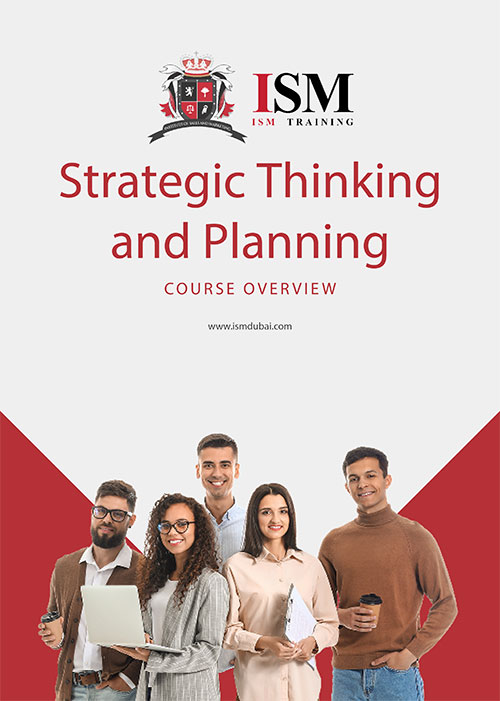Foundations of Strategic Thinking
- Understanding the principles of strategic thinking
- Analyzing internal and external environments
- Recognizing patterns and trends that impact business
Management, High
1 May 2024
Dusit D2 Kenz Hotel
2 days
The Strategic Thinking and Planning course is a 2-day program designed to help individuals develop the skills and knowledge needed to think and plan strategically. Participants will learn how to analyze complex situations, identify opportunities, and develop effective strategies. Topics covered will include strategic thinking and analysis, goal setting, and strategic planning processes. The course is ideal for managers, business owners, and anyone looking to improve their strategic thinking and planning skills.
The Strategic Thinking and Planning course is a focused 2-day program designed to sharpen your strategic thinking and enhance your planning skills. This course offers a deep dive into the methodologies of strategic analysis and planning, equipping participants with the tools to navigate complex business landscapes effectively. Ideal for managers, business owners, and professionals aiming to elevate their strategic acumen, the curriculum covers essential aspects of goal setting, opportunity identification, and strategy development. Attendees will engage in practical exercises and discussions, enhancing their ability to think critically, anticipate future trends, and formulate comprehensive strategies that align with organizational goals.
We offer a comprehensive curriculum that covers all of the essential topics. Our experienced instructors will provide you with the support and guidance that you need to succeed.

1 May 2024
Dusit D2 Kenz Hotel